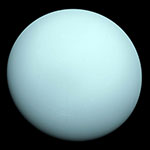The Length Of Day Of The Planets In Our Solar System
The length of day refers to the duration it takes for a planet to complete one full rotation on its axis. It represents the period of time from one sunrise to the next, or from one sunset to the subsequent sunset. In simpler terms, it measures the time it takes for a planet to complete a full day-night cycle.
The length of day varies among planets in our solar system and is influenced by several factors. The primary factor is the rotational speed of the planet. Planets with faster rotational speeds have shorter days, meaning they complete one rotation relatively quickly. On the other hand, planets with slower rotational speeds have longer days, taking more time to complete one full rotation.
For example, Earth has a rotational period of approximately 24 hours, which defines our familiar 24-hour day-night cycle. This means that it takes Earth roughly 24 hours to complete one rotation on its axis, resulting in approximately 12 hours of daylight and 12 hours of darkness.
In contrast, other planets exhibit different lengths of day. For instance, gas giant Jupiter has a much faster rotational speed, completing one rotation in approximately 10 hours. This means that a day on Jupiter lasts only about 10 hours. On the other hand, Venus, which has a retrograde or "backward" rotation compared to most other planets, has an extremely slow rotation period of about 243 Earth days. This results in a significantly longer day on Venus compared to its year, making it the planet with the longest day in our solar system.
| Name | Hours | Ratio To Earth Value | |
|---|---|---|---|
| Jupiter |  |
9.9 | 0.414 |
| Saturn |  |
10.7 | 0.444 |
| Neptune |  |
16.1 | 0.671 |
| Uranus |  |
17.2 | 0.718 |
| Earth |  |
24 | 1 |
| Mars |  |
24.7 | 1.03 |
| Pluto |  |
153.3 | 6.39 |
| Moon |  |
708.7 | 29.5 |
| Venus |  |
2802 | 116.8 |
| Mercury |  |
4222.6 | 175.9 |

